Confocal Microscope | Cloning | Central Instrumention | Microarray | Radioisotope | Tissue Culture |
|
| Food Quality Analysis Laboratory | Biobanking | Library |
| |
| Confocal Microscope Facility |
Our central instrumentation lab houses a state of the art Confocal microscope facility. Equipped with optimized, user friendly hardware and software, this system delivers excellent confocal images and image stacks, especially in fluorescence applications. The system is equipped to study intracellular localization, protein-protein interactions, FRET, FRAP and many more cell biology applications. |
|
 |
| Cloning Facility |
The MDRF has a fully equipped laboratory dedicated to gene cloning studies. The state of the art facility focuses on simple sub cloning to site-directed mutagenesis in bacterial and mammalian systems. The facility offers services including gene characterization, cloning and expression. |
|
| ABI 310 Gene Sequencer |
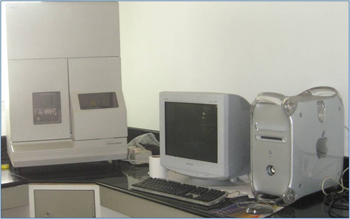 |
| ABI 310 Gene Sequencer automated single-capillary genetic analyzer for sequencing and fragment analysis applications. This is the gold standard instrument for finding novel gene variants. |
| Sequencing detecting system |
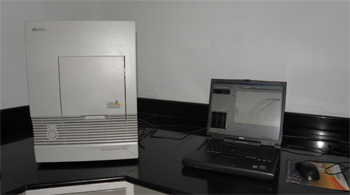
|
Sequencing detecting system (RT-PCR) for allele discrimination assays and for gene expression studies |

|
| Central Instrumentation Facility |
 |
The central instrumentation facility is located in the basement of the MDRF. The facility is equipped with the newer and more sophisticated instruments pertinent to the area of cellular, molecular and biochemical research complementing the basic instruments integral to cellular, molecular and biochemical research. |
 |
| Micro Array Core Facility |
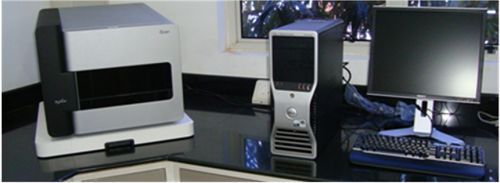 |
Micro array Core Facility is equipped with state-of-the-art molecular profiling technology to meet the demands of high-throughput SNP analysis and expression patterns of thousands of genes in parallel. Our goal is to apply innovative technology and revolutionary assays towards the analysis of the genetics of diabetes. |
| |
| Sequenom MassARRAY Facility |
| MassARRAY Compact system Gene Amp PCR System 9700 MassARRAY Nanodispencer |
 |
Sequenom MassARRAY, a high throughput platform for SNP genotyping, DNA methylation and gene expression analysis. |
| |
| Scintillation Counter |
|
The Radioisotope facility at the MDRF is equipped with a radioisotope hood, GM counter (ECI), Liquid scintillation counter (Beckmann), gel electrophoresis unit (Broviga), gel transfer unit (Broviga), Isotope storage facilities and disposal facilities. Presently, radioisotope laboratory caters extensively for end point readout assays such as glucose uptake, palmitate uptake, thymidine uptake, and glycogen synthase activity measurements. Apart from end-point read out arrays Radioimmunoassay (RIA) and Electrophoretic Mobility Shift Assay (EMSA) measurements are also done in the facility. |
 |
| Tissue culture facility |
|
The Cellular and Molecular Biology (CMB) department has a lab dedicated for tissue culture work. This facility serves as a training lab for tissue culture course work, tissue culture experiments carried out by students involved in research and faculty research projects. Much of the equipment in the tissue culture facility was procured through the FIST (Fund for Infrastructure in Science and Technology) grant awarded to Dr. M. Balasubramanyam in 2003. The lab was renovated in 2008 when the facility was moved to Siruseri.
The facility is equipped to grow mammalian cells. Equipment at the facility include flowhoods, culture incubators, cell counter, inverted phase contrast microscope, primary cultures and cultivation of established cell lines, and human tissues. The aim is to maintain the highest standards, to teach and assist students and researchers in both intra and inter departmental research from within our department and to facilitate collaborative research. The Cell/Tissue Culture Core provides investigators belonging to the institute and their team member with training and updates on the newest techniques in cell/ tissue culture, assistance with experimental design, and facilitating procurement of specific cell lines, organs and tissues. The Cell/Tissue Culture Core provides Core Investigators and coworkers with:
- Basic training in culturing and studying cells and tissues
- Training in cell cloning, preparation of irradiated feeder layers, suspension and reaggregate cultures
- Strategic advice in planning experiments and determining their feasibility
- Cell culture facilities and specialized equipment such as biohazard hoods needed for culture experiments with toxic agents,
- Facilities to process human tissues
- Target cell lines, especially primary cultures of myoblasts, retinal endothelial cells
- Backup storage of valuable lines derived during this work,
- Development of new cell, tissue culture techniques and
- Direction to appropriate local experts for specialized consultations. In addition, the Cell/Tissue Culture Core serves as a seedbed for developing new ideas, matching collaborators and facilitating communication among its users.
|
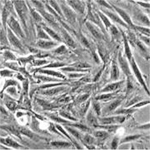 |
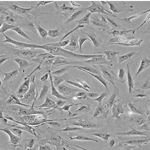 |
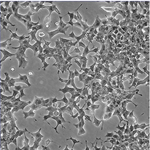 |
| Muscle cells |
Adipocytes |
Pancreatic b-cells |
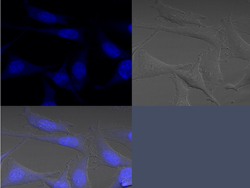 |
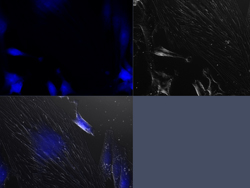 |
|
|
Usage and Benefits
The Tissue Culture Laboratory is administered by Dr. M. Balasubramanyam. Training for research fellows and summer project for college students and training programs for research fellows from collaborating institutes is provided throughout the year. On the average, 8 PhD students, 11 staff members and 2 undergraduates per year use the facility.
Examples of cell types currently stored by tissue culture staff in the Center include.
1. Human embryonic stem cells obtained from Dr. Douglas Melton group, Harvard University
2. Primary Human skeletal muscle cells from biopsy of patients of Dr. Mohan's Diabetes Specialties Centre
3. Primary Human Retinal Endothelial Cells from the Rajan Eye Bank and Government Medical Hospitals
4. Continuous cell lines RINm5F cells derived from epithelia of the rat-NEDH strain
5. Rat L6 muscle cell line
6. Mouse 3T3 preadipocytes
7. THP-1 monocytes
8. TK-6 Lymphoblast cells
9. Jurkat T cells
10. HEPG-2 Cell line
11. HEK cells
Cell lines needed for specific purposes are obtained from sources such as the National Centre Cell Sciences (NCCS), Pune and stored in Liquid Nitrogen for further use.
Training Course
Each year 15-20 students get trained. Many of the students are from the Universities in and around Tamil Nadu pursuing their Post graduate degree in Biochemistry, Pharmacology/Toxicology, Physiology, Cell and Developmental Biology and Nutrition. Students are taught to grow and maintain cell lines, how to select design and perform an experiment. Many of the students use these training programs to help them decide if they would like to pursue a Ph.D. While most of our training programs are geared at PhD students in certain instances special and shorter programs are offered to undergraduate and high school students.
|
 |
| Food Quality Analysis Laboratory |
The food quality analysis laboratory has been established as a wing of the FNDR
Department of the MDRF on June, 2009.
The laboratory is manned by highly qualified scientific staff (1 Ph.D in Food Science and Nutrition, 1 Ph. D in Bio-Chemistry and 1 M.Sc in Food Science and Nutrition) to man the day today work and also few technicians to undertake analysis as well as development and validation of newer food analytical methods.
The laboratory is equipped with facilities for analysis of food materials and their products for
- Moisture
- Protein
- Fat
- Starch
- Resistant starch
- Amylose (Total and Soluble)
- Dietary Fibre (Total, Soluble and Insoluble)
- Available Carbohydrate (Direct method)
- Vitamins
- Ash and Minerals
- Poly phenols
- Cooking quality of rice and pulses
- Microstructures of food grains
- Carbohydrate and protein profiles of food grains and food products
- Amylase activity
The food quality Analysis lab will also undertake the analysis of free sugars and amino acids.
The laboratory is being equipped with lab scale cereal processing machinery such as cereal pulverisers, pearlers, polishers, graders, particle size analyzer and modern analytical instruments. |
|

|
Biobanking
|
The recent trend in medical research is the rise in awareness of the importance of biobanking facilities as prerequisites to gaining knowledge on the development of disease-preventing strategies. The biobanking facility at the MDRF is focused at networking with the foundation’s various departments in the study of the causal pathways involved in diabetes and its complications. The facility is equipped with 17 freezers [15 freezers at -80°C and 2 freezers at -20°C] to achieve this end. It mission is to adhere to the strictest norms governing biobanking. Hence; no sample is procured or stored without obtaining prior ethical clearance from the Institute’s Human Ethical Committee and the written consent of the individual kind enough to donate the sample. Currently; the facility has in storage approximately 75,000 blood samples, 10,000 serum samples, 16,000 genetic samples [whole blood samples and samples taken on filter paper] and 5,000 urine samples obtained from its population-based studies.
|
| Library |
| The Library at the MDRF offers extensive reading material with a total of 63 Journal and 1061 Books on all aspects of diabetes and its complications and disciplines closely related to the fields. Online browsing and computer facilities are also available to all users. |
 |
 |